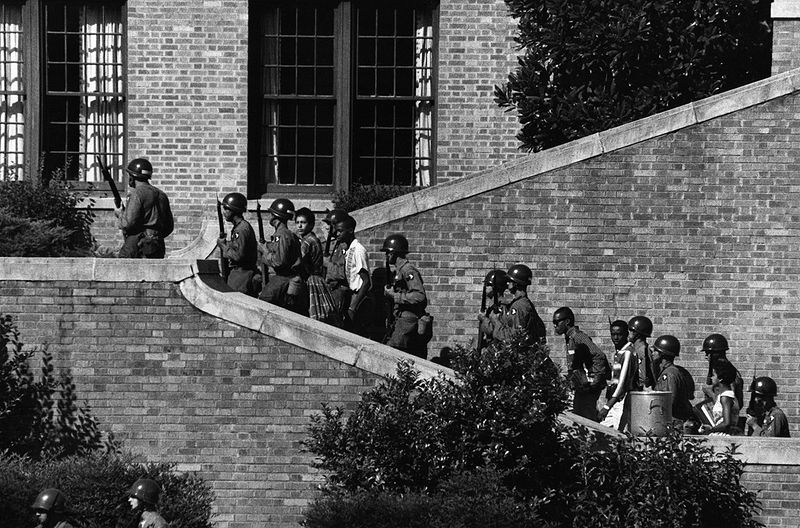The Native American Mascot Issue Will Just Not Go Away
 WISCONSIN. In Wisconsin, the legislature is considering a bill that would give Native Americans the right to formally object to the use of a disparaging nickname by a high school in their school district. Under the Democratic-sponsored bill, anyone who objects to the use of a race-based team name, mascot, symbol, or logo in their school district can file a complaint with the state superintendent of education. A hearing would then be heard to determine if the name or mascot was being used in a way that was “discriminatory, or promoted student harassment or stereotyping.” If the finding is that the use was discriminatory, the district would have one year to eliminate all use of the name or image. If it failed to do so, the district would be subject to daily fines of $100 to $1000.
WISCONSIN. In Wisconsin, the legislature is considering a bill that would give Native Americans the right to formally object to the use of a disparaging nickname by a high school in their school district. Under the Democratic-sponsored bill, anyone who objects to the use of a race-based team name, mascot, symbol, or logo in their school district can file a complaint with the state superintendent of education. A hearing would then be heard to determine if the name or mascot was being used in a way that was “discriminatory, or promoted student harassment or stereotyping.” If the finding is that the use was discriminatory, the district would have one year to eliminate all use of the name or image. If it failed to do so, the district would be subject to daily fines of $100 to $1000.
On February 25, the bill passed in the State Assembly by a vote of 51-42. However, before passage, it was amended to exempt from the bill’s coverage any school that uses a federal-government recognized tribal name as its nickname or any district that obtains permission to use its name or logo from a federally recognized tribe. (Consequently, the Auburndale High Apaches would not be covered by the bill.) At the moment, the bill appears to be bottled up in the Senate where a vote has yet to be scheduled.
During the current academic year, there are still 38 Wisconsin high schools that use Native American team names, including the above-mentioned Auburndale and the all-Native American Menominee High School. No school uses a racially-related team name referring to a group other than Native-Americans.
THE NATION’S CAPITAL. In Washington, D. C., the Supreme Court’s refusal late last year to review a lower court holding dismissing the 1992 Lanham Act challenge to the Washington Redskins trademark filed by Native American activist Suzan Harjo has not ended the Redskins problems. Harjo’s suit was ultimately dismissed on the basis of laches—Harjo and her fellow complaints had waited too long to challenge the 1967 trademark registration by Pro Football, Inc., the corporate name of the Washington NFL team.
However, a new effort to invalidate the Redskins trademark on disparagement grounds–Blackhorse v. Pro Football, Inc.—is currently pending before the Trademark Trial and Appeal Board. The plaintiffs in Blackhorse are all young Native American adults who are claiming that because of their age, they had no previous opportunity to object to the mark and thus are not bared by the lower court ruling in the Harjo litigation. More recently, a second action has been filed by different plaintiffs attacking the legitimacy of six derivative versions of the Redskins trademark—including one for Washington Redskins Cheerleaders—filed since 1992. These actions are seeking to deny the Washington team the right to use the name “Redskins” but they are trying to prevent the team from being able to license the mark.
NORTH DAKOTA. Finally, the debate continues in North Dakota over the right of the University of North Dakota to continue to use the name “Fighting Sioux” for its athletic teams. The NCAA has adopted an approach that prohibits the use of Native American team names and logos unless the tribal group bearing the name in question approves. (More generic team Native American names like Indians, Braves, or Redmen are limited to those colleges like UNC-Pembroke or Haskell University that were founded as colleges for Native Americans.)
The problem in North Dakota is that one of the state’s two Sioux tribes (the Spirit Lake Sioux) has authorized the use of the name but the other (the Standing Rock Sioux) has not. The State Board of Higher Education had ordered the University to begin phasing out the nickname on November 30 unless it secured the permission of both tribes. However, the situation has reached a standstill, and the University is still using the name. (The Fighting Sioux ice hockey team is one of the favorites in the current NCAA championship play-offs and the team squares off against Yale in a first round game on March 27.)
At the moment a number of Native-Americans are fighting to allow the University to continue its use of the name. A petition signed by 850 members of the Standing Rock Sioux tribe is currently in circulation as pro-nickname members of the tribe try to force their leaders to schedule a plebiscite on the issue on the reservation. (The Standing Rock Sioux also elected a pro-nickname council president last year.)
At the same time, eight members of the Spirit Lake Sioux have filed suit against the state arguing that they will be harmed if the University of North Dakota drops the Fighting Sioux nickname and that under an earlier settlement agreement between the NCAA and North Dakota, approval of the name by the Spirit Lake Sioux was sufficient for its continued use. Their request for an injunction was denied by the state district court, but the appeal in Davidson v. State is currently before the North Dakota Supreme Court. Apparently no action will be taken until the court rules. Oral argument in the case is scheduled for tomorrow (March 23).

